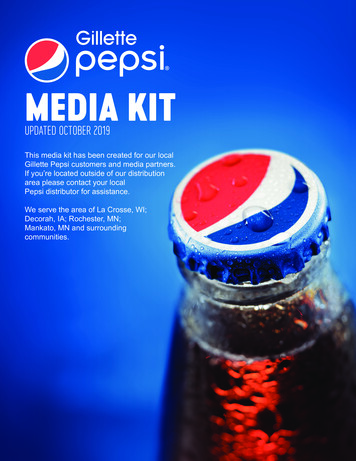
Transcription
The Storyteller760DD TXT.indd 106/02/2013 11:41
Also by Jodi PicoultSongs of the Humpback WhaleHarvesting the HeartPicture PerfectMercyThe PactKeeping FaithPlain TruthSalem FallsPerfect MatchSecond GlanceMy Sister’s KeeperVanishing ActsThe Tenth CircleNineteen MinutesChange of HeartHandle with CareHouse RulesSing You HomeLone WolfJodi Picoult and Samantha van LeerBetween the Lines760DD TXT.indd 206/02/2013 11:41
JODIPICOULTThe Storyteller760DD TXT.indd 306/02/2013 11:41
First published in America in 2013 by Atria BooksAn imprint of Simon & Schuster, Inc.First published in Great Britain in 2013 by Hodder & StoughtonAn Hachette UK company1Copyright Jodi Picoult 2013The right of Jodi Picoult to be identified as the Author of theWork has been asserted by her in accordance with the Copyright,Designs and Patents Act 1988.All rights reserved. No part of this publication maybe reproduced, stored in a retrieval system, or transmitted,in any form or by any means without the prior written permissionof the publisher, nor be otherwise circulated in any form of bindingor cover other than that in which it is published and without asimilar condition being imposed on the subsequent purchaser.Any references to historical events or places are used fictitiously.All characters in this publication are fictitious and any resemblance to realpersons, living or dead is purely coincidental.A CIP catalogue record for this title is available from the British LibraryHardback ISBN 978 1 444 76663 9Trade paperback ISBN 978 1 444 76664 6Ebook ISBN 978 1 444 76665 3Typeset in Berkley Oldstyle by Palimpsest Book Production Limited,Falkirk, StirlingshirePrinted and bound by CPI Group (UK) Ltd, Croydon, CRO 4YYHodder & Stoughton policy is to use papers that are natural, renewableand recyclable products and made from wood grown in sustainable forests.The logging and manufacturing processes are expected to conform to theenvironmental regulations of the country of origin.Hodder & Stoughton Ltd338 Euston RoadLondon NW1 3BHwww.hodder.co.uk760DD TXT.indd 406/02/2013 11:41
This special first print run of The Storyteller is dedicatedto my UK fans . . . you are the reason I keep writingand keep visiting.So many of you have touched me with your loyalty andkind comments we decided to put some of your names inthe endpapers of the book as our way to say thank you.760DD TXT.indd 506/02/2013 11:41
760DD TXT.indd 606/02/2013 11:41
For my mother, Jane Picoult,because you taught me there is nothing moreimportant than family.And because after twenty years, it’s your turn again.760DD TXT.indd 706/02/2013 11:41
760DD TXT.indd 806/02/2013 11:41
AcknowledgmentsThis book began with another: The Sunflower, by Simon Wiesenthal.While a prisoner in a Nazi concentration camp, Wiesenthal wasbrought to the deathbed of an SS soldier, who wanted to confessto and be forgiven by a Jew. The moral conundrum in whichWiesenthal found himself has been the starting point for manyphilosophical and moral analyses about the dynamics betweenvictims of genocide and the perpetrators – and it got me thinkingabout what would happen if the same request was made, decadeslater, to a Jewish prisoner’s granddaughter.To undertake a novel grounded in one of the most horriblecrimes against humanity in history is a daunting task, becauseeven when one is writing fiction, getting the details right becomesan exercise in honoring those who survived, and those who didnot. I am indebted to the following people for their assistance inbringing to life both Sage’s world in the present day and Minka’sworld in the past.For teaching me to bake bread, and the most delicious researchsession of my career, thanks to Martin Philip. Thanks to ElizabethMartin and One More Page Books in Arlington, Virginia, forteaching me how to bake with nefarious intent.For anecdotes about Catholic school, thanks to Katie Desmond.For helping me spell Darija’s dance terminology, thanks to AllysonSawyer. For teaching me the dynamics of a grief group, thanks toSusan Carpenter. For preliminary legal, law enforcement, and wartribunal questions, thanks to Alex Whiting, Frank Moran, andLise Gescheidt.While writing this book, I auctioned off a character name tohelp raise money for the Gay and Lesbian Advocates and Defenders.760DD TXT.indd 906/02/2013 11:41
xJ O D I PI C O ULTThanks to Mary DeAngelis for her generosity, and for providingher name to Sage’s best friend.Eli Rosenbaum, Director of Strategy and Policy for the HumanRights and Special Prosecutions Section of the Department ofJustice, is a real-live Nazi hunter who found the time to teach mewhat he does, let me create a character based on his experiences,and still managed to slay dragons. I am incredibly grateful to knowsomeone like him is out there tirelessly doing what he does. (AndI appreciate the fact that he let me take artistic license on thespeed it takes for historians to get information from NARA. Inreal life it would be days, not minutes.)I am grateful to Paul Wieser, who gave me my first lesson onThird Reich history, and to Steffi Gladebeck, who provided theGerman perspective. But I am most indebted to Dr. Peter Black,Senior Historian at the United States Holocaust Memorial Museum,who suffered my endless questions, corrected me with greatpatience, helped me cobble together a viable Nazi upbringing, andread sections to help ensure historical accuracy. I mean it wholeheartedly when I say I could not have written this book withouthis input.I am grateful to Team Jodi at Emily Bestler Books/Simon & Schuster:Carolyn Reidy, Judith Curr, Kate Cetrulo, Caroline Porter, ChrisLloreda, Jeanne Lee, Gary Urda, Lisa Keim, Rachel Zugschwert,Michael Selleck, and the many others who have helped my careergrow. Thanks to the crackerjack PR team of David Brown, ValerieVennix, Camille McDuffie, and Kathleen Carter Zrelak, who areso good at getting everyone else as excited about a new book asI always am. To Emily Bestler, I value your guidance, your friendship, your commitment to my writing, and your ability to findthe best shopping websites ever.Laura Gross, happy anniversary. Thanks for the information onOneg Shabbat, for letting Sage get under your skin, and most ofall for being my wingman.Thanks to my father, who did indeed conduct a Seder in aDonald Duck voice when we were small. As for my mother – Iknew she was formidable, but when I asked if maybe she could760DD TXT.indd 1006/02/2013 11:41
The Storyteller xifind me some Holocaust survivors, I had names and numberswithin a day. She paved the way for this book, and I am grateful.It is to those men and women, however, that I owe the greatestdebt. The extensive research I conducted for this novel includedspeaking to a group of amazing people – Holocaust survivors,whose experiences during the war in the ghettos, in villages, incities, and in concentration camps fed my imagination and allowedme to create the character of Minka. Although Minka suffers similarhorrors as those described to me by survivors and Nazi hunters,she is not based on any one person I met or heard about; she istruly a work of fiction. So, to the survivors who opened theirhomes and their hearts, I am honored that you chose to shareyour stories with me. Thank you, Sandy Zuckerman – whoprovided me with the transcript of her mother, Sylvia Green’sexperiences during the Holocaust. Thank you, Gerda WeissmanKlein, for your courage and your creativity as a writer. Thank you,Bernie Scheer, for your honesty and your generosity of spirit whiletelling me your experiences. And thank you, Mania Salinger, foryour bravery, for letting me rifle through the bits and pieces ofyour life, and for becoming a treasured friend.And last, thanks to my family: Tim, Kyle (who had the greatforesight to take German while I was writing this book), Jake, andSamantha (who penned a few vampiric paragraphs for me to use).The four of you are the story of my life.760DD TXT.indd 1106/02/2013 11:41
760DD TXT.indd 1206/02/2013 11:41
The Storyteller760DD TXT.indd 1306/02/2013 11:41
760DD TXT.indd 1406/02/2013 11:41
My father trusted me with the details of his death. ‘Ania,’ he wouldsay, ‘no whiskey at my funeral. I want the finest blackberry wine.No weeping, mind you. Just dancing. And when they lower me into theground, I want a fanfare of trumpets, and white butterflies.’ A character,that was my father. He was the village baker, and every day, in additionto the loaves he would make for the town, he would create a single rollfor me that was as unique as it was delicious: a twist like a princess’scrown, dough mixed with sweet cinnamon and the richest chocolate.The secret ingredient, he said, was his love for me, and this made ittaste better than anything else I had ever eaten.We lived on the outskirts of a village so small that everyone kneweveryone else by name. Our home was made of river stone, with athatched roof; the hearth where my father baked heated the entirecottage. I would sit at the kitchen table, shelling peas that I grew in thesmall garden out back, as my father opened the door of the brick ovenand slid the peel inside to take out crusty, round loaves of bread. Thered embers glowed, outlining the strong muscles of his back as he sweatedthrough his tunic. ‘I don’t want a summer funeral, Ania,’ he would say.‘Make sure instead I die on a cool day, when there’s a nice breeze.Before the birds fly south, so that they can sing for me.’I would pretend to take note of his requests. I didn’t mind the macabreconversation; my father was far too strong for me to believe any ofthese requests of his would ever come to pass. Some of the others inthe village found it strange, the relationship I had with my father, thefact that we could joke about this, but my mother had died when I wasan infant and all we had was each other.The trouble started on my eighteenth birthday. At first, it was justthe farmers who complained; who would come out to feed their chickens760DD TXT.indd 106/02/2013 11:41
2J O D I PI C O ULTand find only an explosion of bloody feathers in the coop, or a calfnearly turned inside out, flies buzzing around its carcass. ‘A fox,’ saidBaruch Beiler, the tax collector, who lived in a mansion that sat at thebottom of the village square like a jewel at the throat of a royal. ‘Maybea wildcat. Pay what you owe, and in return, you will be protected.’He came to our cottage one day when we were unprepared for him,and by this I mean we did not manage to barricade the doors and dousethe fire and make it seem as if we were not at home. My father wasshaping loaves into hearts, as he always did on my birthday, so thatthe whole town knew it was a special day. Baruch Beiler swept into thekitchen, lifted his gold-tipped cane, and smacked the worktable. Flourrose in a cloud, and when it settled I looked down at the dough betweenmy father’s hands, at that broken heart.‘Please,’ said my father, who never begged. ‘I know what I promised.But business has been slow. If you give me just a little more time—’‘You’re in default, Emil,’ Beiler said. ‘I hold the lien on this rat hole.’He leaned closer. For the first time in my life, I did not think my fatherinvincible. ‘Because I am a generous man, a magnanimous man, I willgive you till the end of the week. But if you don’t come up with themoney, well, I can’t say what might happen.’ He lifted his cane, slidingit between his hands like a weapon. ‘There have been so many . . .misfortunes lately.’‘It’s why there are so few customers,’ I said, my voice small. ‘Peoplewon’t come to market because they fear the animal that’s out there.’Baruch Beiler turned, as if noticing for the first time that I was evenpresent. His eyes raked over me, from my dark hair in its single braidto the leather boots on my feet, whose holes had been repaired withthick patches of flannel. His gaze made me shiver, not in the same waythat I felt when Damian, the captain of the guard, watched me walkaway in the village square – as if I were cream and he was the cat.No, this was more mercenary. It felt like Baruch Beiler was trying tofigure out what I might be worth.He reached over my shoulder to the wire rack where the most recentbatch of loaves was cooling, plucked one heart-shaped boule from its shelf,and tucked it beneath his arm. ‘Collateral,’ he pronounced, and he walkedout of the cottage, leaving the door wide open simply because he could.760DD TXT.indd 206/02/2013 11:41
The Storyteller 3My father watched him go, and then shrugged. He grabbed anotherhandful of dough and began to mold it. ‘Ignore him. He is a little manwho casts a big shadow. One day, I will dance a jig on his grave.’ Thenhe turned to me, a smile softening his face. ‘Which reminds me, Ania.At my funeral, I want a procession. First the children, throwing rosepetals. Then the finest ladies, with parasols painted to look like hothouseflowers. Then of course my hearse, drawn by four – no – five snowyhorses. And finally, I’d like Baruch Beiler to be at the end of the parade,cleaning up the dung.’ He threw back his head and laughed. ‘Unless,of course, he dies first. Preferably sooner rather than later.’My father trusted me with the details of his death . . . but in theend, I was too late.760DD TXT.indd 306/02/2013 11:41
760DD TXT.indd 406/02/2013 11:41
Part IIt is impossible to believe anything in a world that has ceased toregard man as man, that repeatedly proves that one is no longera man.– Simon Wiesenthal, The Sunflower760DD TXT.indd 506/02/2013 11:41
760DD TXT.indd 606/02/2013 11:41
SageOn the second Thursday of the month, Mrs. Dombrowskibrings her dead husband to our therapy group.It’s just past 3:00 p.m., and most of us are still filling our papercups with bad coffee. I’ve brought a plate of baked goods – lastweek, Stuart told me that the reason he keeps coming to HelpingHands isn’t the grief counseling but my butterscotch pecan muffins– and just as I am setting them down, Mrs. Dombrowski shylynods toward the urn she is holding. ‘This,’ she tells me, ‘is Herb.Herbie, meet Sage. She’s the one I told you about, the baker.’I stand frozen, ducking my head so that my hair covers the leftside of my face, like I usually do. I’m sure there’s a protocol formeeting a spouse who’s been cremated, but I’m pretty much at aloss. Am I supposed to say hello? Shake his handle?‘Wow,’ I finally say, because although there are few rules to thisgroup, the ones we have are steadfast: be a good listener, don’tjudge, and don’t put boundaries on someone else’s grief. I knowthis better than anyone. After all, I’ve been coming for nearly threeyears now.‘What did you bring?’ Mrs. Dombrowksi asks, and I realize whyshe’s toting her husband’s urn. At our last meeting, our facilitator– Marge – had suggested that we share a memory of whatever itwas we had lost. I see that Shayla is clutching a pair of knit pinkbooties so tightly her knuckles are white. Ethel is holding a tele vision remote control. Stuart has – again – brought in the bronzedeath mask of his first wife’s face. It has made an appearance afew times at our group, and it was the creepiest thing I’d ever seen– until now, when Mrs. Dombrowski has brought along Herb.Before I have to stammer my answer, Marge calls our little group760DD TXT.indd 706/02/2013 11:41
8J O D I PI C O ULTto order. We each pull a folding chair into the circle, close enoughto pat someone on the shoulder or reach out a hand in support.In the center sits the box of tissues Marge brings to every session,just in case.Often Marge starts out with a global question – Where were youwhen 9/11 happened? It gets people talking about a communaltragedy, and that sometimes makes it easier to talk about a personalone. Even so, there are always people who don’t speak. Sometimesmonths go by before I even know what a new participant’s voicesounds like.Today, though, Marge asks right away about the mementos we’vebrought. Ethel raises her hand. ‘This was Bernard’s,’ she says,rubbing the television remote with her thumb. ‘I didn’t want it tobe – God knows I tried to take it away from him a thousandtimes. I don’t even have the TV this works with, anymore. But Ican’t seem to throw it out.’Ethel’s husband is still alive, but he has Alzheimer’s and has noidea who she is anymore. There are all sorts of losses people suffer– from the small to the large. You can lose your keys, your glasses,your virginity. You can lose your head, you can lose your heart,you can lose your mind. You can relinquish your home to moveinto assisted living, or have a child move overseas, or see a spousevanish into dementia. Loss is more than just death, and grief isthe gray shape-shifter of emotion.‘My husband hogs the remote,’ Shayla says. ‘He says it’s becausewomen control everything else.’‘Actually, it’s instinct,’ Stuart says. ‘The part of the brain that’sterritorial is bigger in men than it is in women. I heard it on JohnTesh.’‘So that makes it an inviolable truth?’ Jocelyn rolls her eyes.Like me, she is in her twenties. Unlike me, she has no patiencefor anyone over the age of forty.‘Thanks for sharing your memento,’ Marge says, quickly interceding. ‘Sage, what did you bring today?’I feel my cheeks burn as all eyes turn to me. Even though Iknow everyone in the group, even though we have formed a circle760DD TXT.indd 806/02/2013 11:41
The Storyteller 9of trust, it is still painful for me to open myself up to their scrutiny. The skin of my scar, a starfish puckered across my left eyelidand cheek, grows even tighter than usual.I shake my long bangs over my eye and from beneath my tanktop, pull out the chain I wear with my mother’s wedding ring.Of course, I know why – three years after my mom’s death – itstill feels like a sword has been run through my ribs every timeI think of her. It’s the same reason I am the only person from myoriginal grief group still here. While most people come for therapy,I came for punishment.Jocelyn raises her hand. ‘I have a real problem with that.’I blush even deeper, assuming she’s talking about me, but thenI realize that she’s staring at the urn in Mrs. Dombrowski’s lap.‘It’s disgusting!’ Jocelyn says. ‘We weren’t supposed to bringsomething dead. We were supposed to bring a memory.’‘He’s not a something, he’s a someone,’ Mrs. Dombrowski says.‘I don’t want to be cremated,’ Stuart muses. ‘I have nightmaresabout dying in a fire.’‘News flash: you’re already dead when you’re put into the fire,’Jocelyn says, and Mrs. Dombrowski bursts into tears.I reach for the box of tissues, and pass it toward her. WhileMarge reminds Jocelyn about the rules of this group, kindly butfirmly, I head for the bathroom down the hall.I grew up thinking of loss as a positive outcome. My motherused to say it was the reason she met the love of her life. She’dleft her purse at a restaurant and a sous-chef found it and trackedher down. When he called her, she wasn’t home and her roommate took the message. A woman answered when my mom calledback, and put my father on the phone. When they met so thathe could give my mother back her purse, she realized he waseverything she’d ever wanted . . . but she also knew, from herinitial phone call, that he lived with a woman.Who just happened to be his sister.My dad died of a heart attack when I was nineteen, and theonly way I can even make sense of losing my mother three yearslater is by telling myself now she’s with him again.760DD TXT.indd 906/02/2013 11:41
10J O D I PI C O ULTIn the bathroom, I pull my hair back from my face.The scar is silver now, ruched, rippling my cheek and my browlike the neck of a silk purse. Except for the fact that my eyeliddroops, skin pulled too tight, you might not realize at first glancethat there’s something wrong with me – at least that’s what myfriend Mary says. But people notice. They’re just too polite to saysomething, unless they are under the age of four and still brutallyhonest, pointing and asking their moms what’s wrong with thatlady’s face.Even though the injury has faded, I still see it the way it wasright after the accident: raw and red, a jagged lightning bolt splitting the symmetry of my face. In this, I suppose I’m like a girlwith an eating disorder, who weighs ninety-eight pounds but seesa fat person staring back at her from the mirror. It isn’t even ascar to me, really. It’s a map of where my life went wrong.As I leave the bathroom, I nearly mow down an old man. I amtall enough to see the pink of his scalp through the hurricanewhorl of his white hair. ‘I am late again,’ he says, his Englishaccented. ‘I was lost.’We all are, I suppose. It’s why we come here: to stay tetheredto what’s missing.This man is a new member of the grief group; he’s only beencoming for two weeks. He has yet to say a single word during asession. Yet the first time I saw him, I recognized him; I justcouldn’t remember why.Now, I do. The bakery. He comes in often with his dog, a littledachshund, and he orders a fresh roll with butter and a blackcoffee. He spends hours writing in a little black notebook, whilehis dog sleeps at his feet.As we enter the room, Jocelyn is sharing her memento: something that looks like a mangled, twisted femur. ‘This was Lola’s,’she says, gently turning the rawhide bone over in her hands. ‘Ifound it under the couch after we put her down.’‘Why are you even here?’ Stuart says. ‘It was just a damn dog!’Jocelyn narrows her eyes. ‘At least I didn’t bronze her.’They start arguing as the old man and I get settled in the circle.760DD TXT.indd 1006/02/2013 11:41
The Storyteller 11Marge uses this as a distraction. ‘Mr. Weber,’ she says, ‘welcome.Jocelyn was just telling us how much her pet meant to her. Haveyou ever had a pet you loved?’I think of the little dog he brings to the bakery. He shares theroll with her, fifty-fifty.But the man is silent. He bows his head, as if he is being presseddown in his seat. I recognize that stance, that wish to disappear.‘You can love a pet more than you love some people,’ I saysuddenly, surprising even myself. Everyone turns, because unlikethe others, I hardly ever draw attention to myself by volunteeringinformation. ‘It doesn’t matter what it is that leaves a hole insideyou. It just matters that it’s there.’The old man slowly glances up. I can feel the heat of his gazethrough the curtain of my hair.‘Mr. Weber,’ Marge says, noticing. ‘Maybe you brought amemento to share with us today . . .?’He shakes his head, his blue eyes flat and without expression.Marge lets his silence stand; an offering on a pedestal. I knowthis is because some people come here to talk, while others cometo just listen. But the lack of sound pounds like a heartbeat. It’sdeafening.That’s the paradox of loss: How can something that’s gone weighus down so much?At the end of the hour, Marge thanks us for participating andwe fold up the chairs and recycle our paper plates and napkins.I pack up the remaining muffins and give them to Stuart. Bringingthem back to the bakery would be like carting a bucket of waterto Niagara Falls. Then I walk outside to head back to work.If you’ve lived in New Hampshire your whole life, like I have,you can smell the change in the weather. It’s oppressively hot, butthere’s a thunderstorm written across the sky in invisible ink.‘Excuse me.’I turn at the sound of Mr. Weber’s voice. He stands with hisback to the Episcopal church where we hold our meetings.Although it’s at least eighty-five degrees out, he is wearing a longsleeved shirt that is buttoned to the throat, with a narrow tie.760DD TXT.indd 1106/02/2013 11:41
12J O D I PI C O ULT‘That was a nice thing you did, sticking up for that girl.’The way he pronounces the word thing, it sounds like think.I look away. ‘Thanks.’‘You are Sage?’Well, isn’t that the sixty-four-thousand-dollar question? Yes, it’smy name, but the double entendre – that I’m full of wisdom – hasnever really applied. There have been too many moments in mylife when I’ve nearly gone off the rails, more overwhelmed byemotion than tempered by reason.‘Yes,’ I say.The awkward silence grows between us like yeasted dough.‘This group. You have been coming a long time.’I don’t know whether I should be defensive. ‘Yes.’‘So you find it helpful?’If it were helpful, I wouldn’t still be coming. ‘They’re all nicepeople, really. They each just sometimes think their grief is biggerthan anyone else’s.’‘You don’t say much,’ Mr. Weber muses. ‘But when you do . . . you are a poet.’I shake my head. ‘I’m a baker.’‘Can a person not be two things at once?’ he asks, and slowly,he walks away.I run into the bakery, breathless and flushed, to find my bosshanging from the ceiling. ‘Sorry I’m late,’ I say. ‘The shrine ispacked and some moron in an Escalade took my spot.’Mary’s rigged up a Michelangelo-style dolly so that she can lieon her back and paint the ceiling of the bakery. ‘That moron wouldbe the bishop,’ she replies. ‘He stopped in on his way up the hill.Said your olive loaf is heavenly, which is pretty high praise, comingfrom him.’In her previous life, Mary DeAngelis was Sister Mary Robert.She had a green thumb and was well known for maintaining thegardens in her Maryland cloister. One Easter, when she heard thepriest say He is risen, she found herself standing up from the pewand walking out the cathedral door. She left the order, dyed her760DD TXT.indd 1206/02/2013 11:41
The Storyteller 13hair pink, and hiked the Appalachian Trail. It was somewhere onthe Presidential Range that Jesus appeared to her in a vision, andtold her there were many souls to feed.Six months later, Mary opened Our Daily Bread at the foothillsof the Our Lady of Mercy Shrine in Westerbrook, New Hampshire.The shrine covers sixteen acres with a meditation grotto, a peaceangel, Stations of the Cross, and holy stairs. There is also a storefilled with crosses, crucifixes, books on Catholicism and theology,Christian music CDs, saints’ medals, and Fontanini crèche sets.But visitors usually come to see the 750-foot rosary made of NewHampshire granite boulders, linked together with chains.It was a fair-weather shrine; business dropped off dramaticallyduring New England winters. Which was Mary’s selling point:What could be more secular than freshly baked bread? Why notboost the revenue of the shrine by adding a bakery that wouldattract believers and nonbelievers alike?The only catch was that she had no idea how to bake.That’s where I come in.I started baking when I was nineteen years old and my fatherdied unexpectedly. I was at college, and went home for the funeral,only to return and find nothing the same. I stared at the wordsin textbooks as if they had been written in a language I could notread. I couldn’t get myself out of bed to go to classes. I missedone exam, then another. I stopped turning in papers. Then onenight I woke up in my dorm room and smelled flour – so muchflour I felt as if I’d been rolling in it. I took a shower but couldn’tget rid of the smell. It reminded me of Sunday mornings as a kid,when I would awaken to the scent of fresh bagels and bialys,crafted by my father.He’d always tried to teach my sisters and me, but mostly wewere too busy with school and field hockey and boys to listen.Or so I thought, until I started to sneak into the residential collegedining hall kitchen and bake bread every night.I left the loaves like abandoned babies on the thresholds of theoffices of professors I admired, of the dorm rooms of boys withsmiles so beautiful that they stunned me into awkward silence. I760DD TXT.indd 1306/02/2013 11:41
14J O D I PI C O ULTleft a finial row of sourdough rolls on a lectern podium and slippeda boule into the oversize purse of the cafeteria lady who pressedplates of pancakes and bacon at me, telling me I was too skinny.On the day my academic adviser told me that I was failing threeof my four classes, I had nothing to say in my defense, but I gaveher a honey baguette seeded with anise, the bitter and the sweet.My mother arrived unexpectedly one day. She took up residencein my dorm room and micromanaged my life, from making sureI was fed to walking me to class and quizzing me on my homework readings. ‘If I don’t get to give up,’ she told me, ‘then neitherdo you.’I wound up being on the five-year plan, but I did graduate.My mother stood up and whistled through her teeth when I crossedthe stage to get my diploma. And then everything went to hell.I’ve thought a lot about it: how you can ricochet from a momentwhere you are on top of the world to one where you are crawlingat rock bottom. I’ve thought about all the things I could havedone differently, and if it would have led to another outcome. Butthinking doesn’t change anything, does it? And so afterward, withmy eye still bloodshot and the Frankenstein monster stitchescurving around my temple and cheek like the seam of a baseball,I gave my mother the same advice she had given me. If I don’t getto give up, then neither do you.She didn’t, at first. It took almost six months, one bodily systemshutting down after another. I sat by her side in the hospital everyday, and at night went home to rest. Except, I didn’t. Instead, Istarted once again to bake – my go‑to therapy. I brought artisanloaves to her doctors. I made pretzels for the nurses. For mymother, I baked her favorite – cinnamon rolls, thick with icing. Imade them daily, but she never managed a bite.It was Marge, the facilitator of the grief group, who suggestedI get a job to help me forge some kind of routine. Fake it untilyou make it, she said. But I couldn’t stand the thought of workingin broad daylight, where everyone would be staring at my face. Ihad been shy before; now I was reclusive.Mary says it’s divine intervention that she ran into me. (She760DD TXT.indd 1406/02/2013 11:41
The Storyteller 15calls herself a recovering nun, but in reality, she gave up her habit,not her faith.) Me, I don’t believe in God; I think it was pure luckthat the first classifieds sectio
2 JODI PICOULT and find only an explosion of bloody feathers in the coop, or a calf nearly turned inside out, flies buzzing around its carcass. ‘A fox,’ said Baruch Beiler, the tax collector, who lived in a mansion that sat at the bottom of the village square










